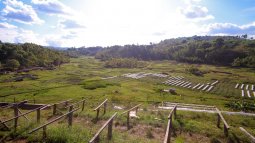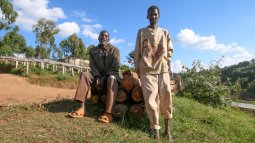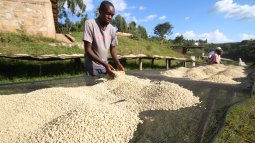Karehe Washing Station focuses on cherry ripeness and sorting in order to provide only the highest-quality green coffee post-processing. Producers are paid immediately upon delivery of the cherry at a standard market price, and a second payment is done when the harvest is complete; if the coffee is bought with quality premiums for cup score, the producers get a bonus in the second payment.
Deep in the heart of Africa is the tiny country Burundi, and deep in Burundi is Cafe Imports: We have been trekking to this gem of a place just south of Rwanda on Lake Tanganyika since 2006, and Cafe Imports was one of the very first companies to see the great potential in specialty coffees here—not only for their profile, which is exquisite, as complex as Kenya but as versatile as a top-flight Colombian; but also for the economic possibilities that specialty coffee offers.
Coffee in Burundi is a logistical challenge from start to finish, even for the best of us. It is a particularly poor country, with one of the lowest GDP in Africa, and recent years have brought renewed political struggles and unrest that hark back to very troubled times in the late 1990s and early 2000s. The country’s landlocked position on the continent is also tricky to navigate: Rather than being sold FOB (Free on Board), as most coffees are once they arrive at port and are loaded onto a container, coffees from Rwanda, Burundi, and Democratic Republic of Congo are traded FOT, or Free on Truck—a much riskier arrangement as it requires an incredibly long haul from the processing mill to a port that’s as many as three countries and up to a week’s travel time removed.
Despite the surface similarities that Burundi and Rwanda share on paper with regards to varieties, processing, farmer profile, and history (the two nations are often lumped together on offerings sheets and in the “story” of African coffees), they are practically night and day in the cup: The sparkling acidity of Burundi and the incredible complexity and diversity that’s possible here is absolutely a product of the terroir, and the taste of the place is as beautiful and varied as the place itself.
We are in love with the coffees, the people, and the country of Burundi, and by continuing to invest in buying microlots from our washing-station partners, we are able to consistently offer our customers what we believe are some of the most interesting and most consistently high-cupping coffees from Africa.
For more information about coffee production in Burundi, visit our Burundi Origin Page.




